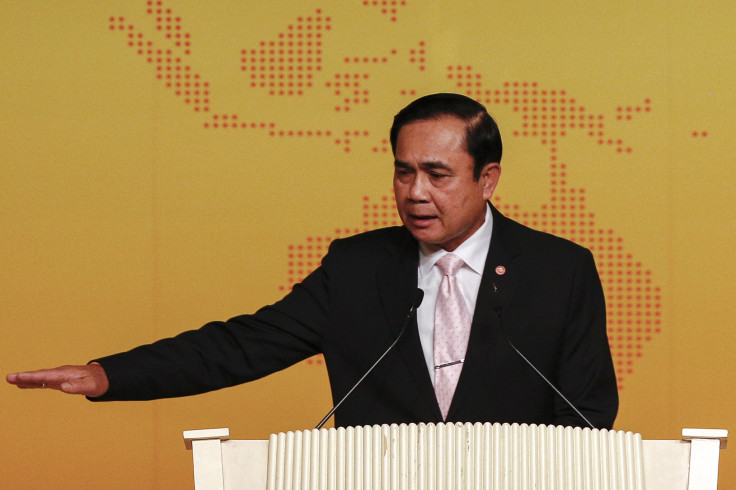Thai PM Prayuth And Junta Panel Urge Calm Over Draft Charter

Thai Prime Minister Prayuth Chan-ocha and the junta-appointed panel overseeing the rewrite of the country’s constitution sought to allay growing criticism Monday. The previous constitution was torn up in a coup last May, and critics have been calling for increased public participation in the rewriting process.
"We are still drafting the constitution. If there is any part that worries society, then the committee is ready to listen," said Bowornsak Uwanno, a law academic who heads the committee, according to Reuters. "There is time until the end of March. We will introduce the draft in April. Don't worry yet," he added. The 36-member Charter Drafting Committee (CDC) was handpicked by the military junta when former Prime Minister Yingluck Shinawatra was deposed last year. Yingluck was indicted over a rice subsidy scandal in February and was barred from taking part in politics for five years.
Prayuth stressed that a lot remains to be done in the charter draft. "It is not yet a law. It is not yet a constitution. It is still in the drafting process," he said, according to the Bangkok Post.
Some of the more contentious points in the charter include the prime minister no longer needing to be an elected lawmaker. Critics have said that this proposal was designed to limit the power of elected politicians and ensure that the popular former leader Thaksin Shinawatra, brother of Yingluck and now in exile, could never return to power, according to Reuters.
Other criticisms of the draft charter include senators needing to be approved by a selection team, allowing political groups to contest polls and changing the election system that would reduce the seats of major political parties, according to the Bangkok Post.
The Democrat Party deputy leader, Korn Chatikavanij, has called for the draft charter to be endorsed by a public referendum before it goes into effect. "It is important to engage the public in the charter drafting process by allowing them to vote in a referendum. Give them a choice. Don't force their hands into accepting it," Korn said, according to the Bangkok Post.
Democrat deputy secretary Sathit Pitutecha was concerned that the CDC’s proposal could impede the transitioning of Thailand into a democracy away from the junta government. “If the draft charter is rejected by the National Reform Council or by the people, in the event of a public referendum, we will be back to square one and the military will stay longer," Sathit said.
© Copyright IBTimes 2024. All rights reserved.












